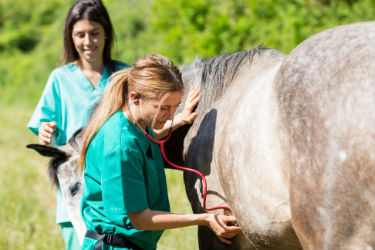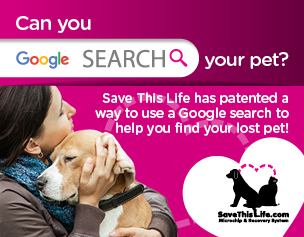Equine Client Information: How Vaccinations Fail

One of the best ways to protect a horse from acquiring an infectious disease is through vaccinations. While owners often choose to self-vaccinate their animals, there are several reasons as to why this task should be completed by the veterinarian.
Active Immunity Can Be Generated Naturally or Via Vaccination
Animals who are immune to certain disease pathogens naturally have within their system antibodies that function to attack and destroy a disease before it starts. When an animal that lacks this protection becomes ill with an infectious disease, their immune system creates antibodies that not only fight the disease, but also protect against future reinfections. Now actively immune, the horse will continue to make antibodies that fight the infection even after the disease has run its course. Any time the horse is re-exposed to the disease, its immune system will again produce antibodies.
The level of active immunity created via an animal’s natural exposure to disease can also be generated through the use of vaccines.
Vaccinations are designed to stimulate antibody production to fight a specific disease pathogen. When created through natural exposure, active immunity has a long duration; however, the protection that occurs from a vaccination may be limited. To continue to effectively protect against infectious disease, the veterinarian will determine a vaccination schedule that focuses on the needs of the individual horse, as well as issue-appropriate booster vaccines.
Effectiveness of Vaccines Can Be Reduced
While vaccines are usually very effective in the fight against disease, clients need to know that there can be times when they aren’t. Often related to human error, animals can become ill even after they have been vaccinated.
For example, incorrectly following the directions for giving the vaccine, by giving the injection underneath the skin when it should be given deep within the muscle, may render the vaccine ineffective.
Inappropriate handling of syringes can cause problems such as infections at the injection site and post-vaccine fibromas.
Inadequate storage can cause failure of the vaccine if it is not kept refrigerated, frozen or exposed to direct sunlight.
Improper vaccine administration includes:
- Vaccinating an animal that is physically stressed with, for example:
- Weakened immune system
- Poor body condition caused by a lack of nutrition
- Vaccinating an animal that has been exposed to the disease, but has not had time to develop antibodies yet
- Dividing a single dose between 2 horses, which results in neither animal being protected and both at risk of becoming ill
- Sharing needles between horses, which may transmit disease between animals
- Not following the recommended schedule for administering shots or boosters, which will leave an animal unprotected and at risk of disease
- Using outdated or expired vaccines
- Mixing with diluent, but not promptly dispensing dosage.
Vaccines May Cause Adverse Reactions
Clients need to be aware that there are times when a vaccine can cause a potentially fatal reaction. When this happens, the animal will require immediate veterinary care. Adverse reactions can be caused, for example, by the following:
- Vaccines that are incorrectly delivered, such as:
- Administering a vaccine intravenously instead of subcutaneously
- Giving an intra-nasal vaccine parenterally
- Animal reaction to the adjuvant or another component of the vaccine.
Signs that indicate an animal is experiencing an adverse reaction include:
- Heat and swelling at the site of the vaccination
- Pain
- Inappetence
- Refusal to exercise
- Development of an abscess at the site of injection
- Vaccine failure, resulting in infection.
It is important to inform clients that there can be times when a situation occurs even though the animal has never had a problem before. Clients should be informed that when given a vaccination, their animal may go into anaphylactic shock, a severe and life-threatening allergic reaction. Occurring within minutes or up to a few hours after the vaccine is administered, the animal may:
- Experience a rapid drop in blood pressure
- Have breathing difficulties
- Collapse.
Should this happen, the animal needs immediate veterinary intervention, or it may die.
In order to protect an animal from disease, it is essential to vaccinate. However, unless the client has been trained to properly administer the vaccine, as well as recognize and quickly respond if the animal experiences an adverse reaction, this part of the animal’s health regimen should be left to the veterinarian.
Your Covetrus representative can provide other tips and suggestions of value to you and your clients! Contact us at: 855.724.3461.


Working Here
Our team members are encouraged to be the best they can be... at Covetrus we believe we impact one another.
Learn MoreNews & Events
FDA Cautions Pet Owners Not to Feed Texas Tripe Inc. Raw Pet Food Due to Salmonella, Listeria Monocytogenes
The U.S. Food and Drug Administration is cautioning pet owners not to feed their pets any of the Texas Tripe brand raw frozen pet food listed below because several samples of Texas Tripe raw pet food have tested positive for Salmonella and/or L. mono.
Careers
Are you looking for a place to let your talents shine? At Covetrus, we help our practitioner customers better serve their patients and take pride in providing the best customer experience possible. Search our open positions to see our available opportunities.
Newsletter
Stay current with what’s going on with Covetrus, subscribe to receive our newsletter and email communications. Subscribers will receive the latest information in practice management, sales and marketing, animal health, and more.



-3-(1).png?sfvrsn=2d806d73_0)

Leave a comment